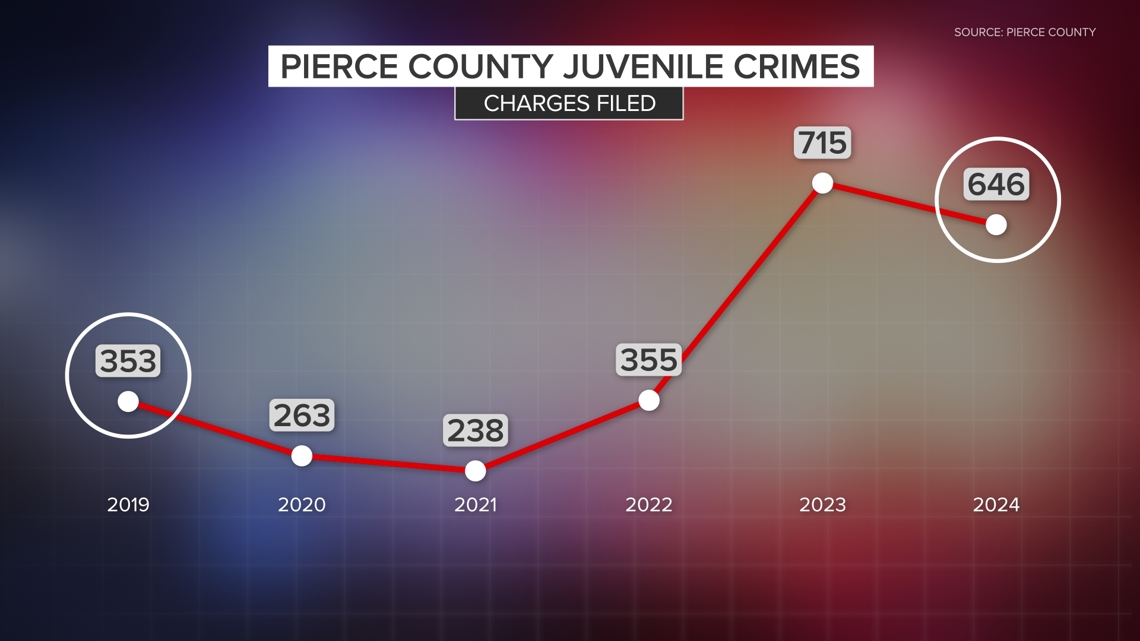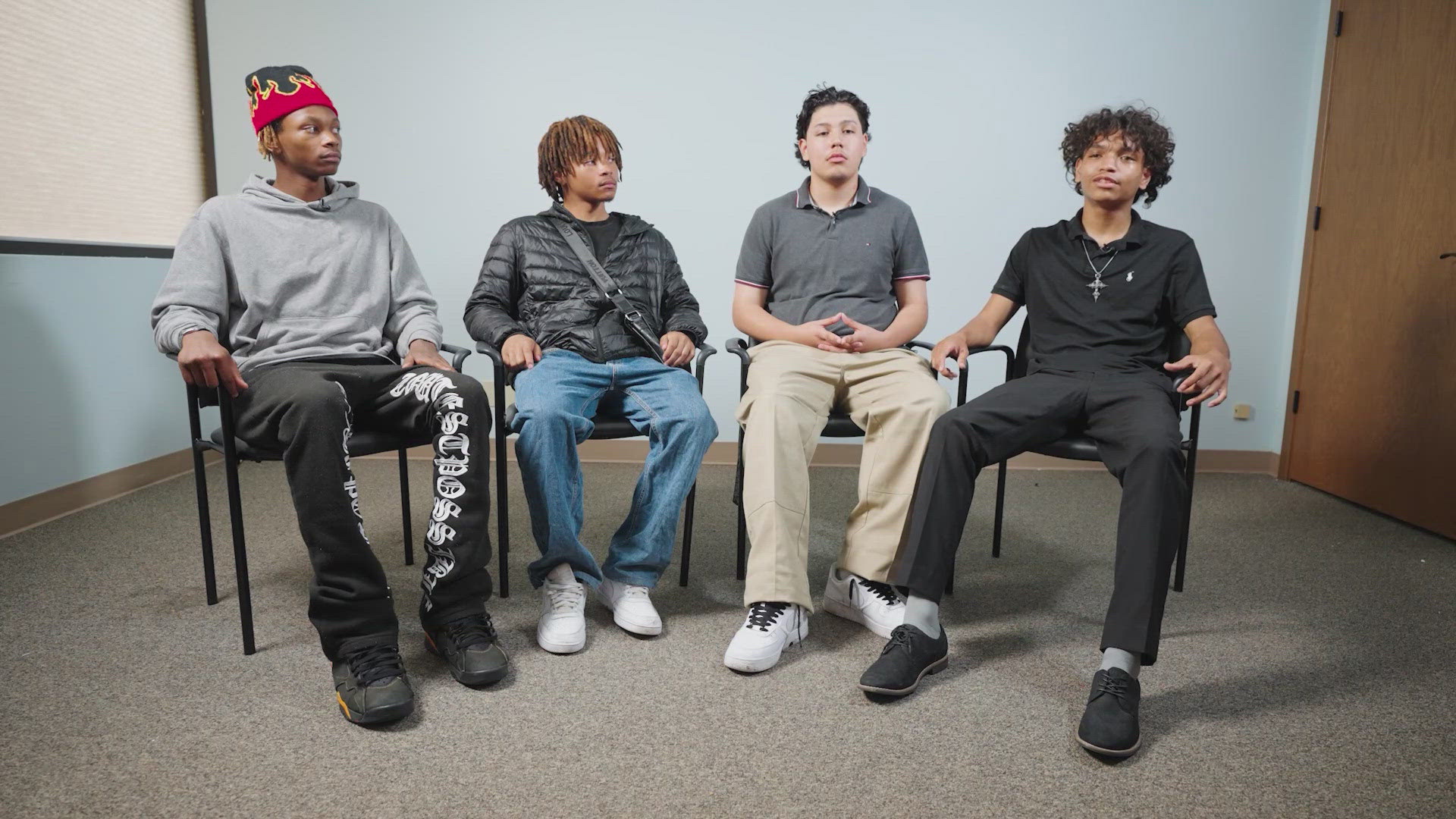SEATTLE — KING 5 has been looking into the crisis of a juvenile crime spike in Western Washington, with serious offenses committed by kids as young as 12 and 13 years old.
In our series, Underage and Under Arrest, we examine efforts to turn the tide.
For Devonte Parson, his focus is on keeping kids from entering the juvenile justice system in the first place.
"This is Yesler Terrace, this is where I came to when I was little from Texas, this is the first place I was brought up,” Parson said as he gave a tour of his old neighborhood. "I used to get jumped. There were times when I was robbed, and this is when I was a little kid."
“It was like, either you’re going to be the person that dish it out, or you're going to be the person to receive it,” Parson said.
That background has motivated him to make a change by bringing new ideas and tactics to stop a trend -- younger kids in Washington state involved in crime. He is working to empower at-risk kids at a pivotal point in time.
"I've been with the Renton police department for 29 years now, and it's the worst our officers have probably dealt with in that time,” said Chief Jon Schuldt of the Renton Police Department.
KING 5 analyzed data from our region's three most populated counties and found juvenile crime, especially serious offenses, is trending up. Take Pierce County for example. Compared to pre-pandemic years, crimes such as assault and robbery are on pace to increase by 60% this year.


In a room full of teenagers who have been in trouble before, Parson raised the question, "What do you think is something that needs to be put in place to help you not need to go back?”
"I have people here like you guys to keep me on the right track and make sure I don't revert back to hanging around with those negative people,” said 17-year-old Mychkol Franklin. "It has gotten way easier."
Parson followed up with, "has your growth been consistent and what are some ways that you are challenged?"
It is a question Parson has had to ask himself in the past.
"I'm fighting I'm robbing; I'm shooting,” said Parson referring to the crimes he started committing when he was just 14 years old. "I was either staying on the bus, or I was staying at some of my friends' houses."
Back then there were frequent trips to Seattle's Central District.
"I have been locked up on this block like three or four times,” Parson said as he drove through the neighborhood.
Parson said there was also a time on Cherry Street when he became the target.
"I got shot at,” Parson said. "Honestly it is like reliving trauma at this point. You know what I mean. It is like reliving trauma. There is that sense of I can feel how I felt."
His violent path led him to prison.
"I was like, this is hopeless,” Parson said. "There's no way possible I'm getting out of this."
With a long rap sheet and new assault charges for a drive-by shooting in 2015, Parson was facing a terrifying sentence: 140-years behind bars. The outlook was so bleak, he made a drastic move.
"Somebody put me on with a book about going Pro Se, you know, representing yourself in court," Parson said. "Why not represent myself? I care about my life the most. So, I was like, you know what, fire my attorney and I'm doing this myself. I used to walk in a circle in my cell in my suit."
He put his full focus into studying to get ready for the trial.
"I really got a hung jury on all the assault first degrees,” Parson said. "The prosecutor was like; he doesn't want to go back through that again. If you just take this assault and gun charge, you'll be out in a couple years."
Parson took the offer, and when he left prison, it was with a new purpose.
"We pair your young people, young people of color in these underserved communities with mentors,” Parson said. "We teach kids life skills, critical thinking skills."
He started a nonprofit with a nod to his past, calling it Pro Se Potential. He's working to convince teenagers to make better choices than he did.
Joshua Wheeldon, 18, Andreas Moran, 16, along with brothers 17-year-old Mychkol and 18-year-old Lionel Franklin are all participating in Pro Se Potential’s programs.
"I want to be here to show up," Wheeldon said. "I want to be able to get my life together."
"I never really had anyone to reach out to before I met Pro Se and all that,” Moran said.
"It's like a place where you can talk and be heard,” Mychkol Franklin said.
"They found their path," Lionel Franklin said. "Now they are helping us find our path. You need help. That is something that I had to really learn. I need help. I can't do everything on my own.”
Parson's work involves going into the youth jail to work with inmates there. He also holds sessions, giving teens a place to talk. He says Pro Se Potential is working with the majority of the kids in the programs getting a job, staying in school, and staying out of jail.
On the same streets where Parson used to commit crime, he's back with his plan to prevent it, inspiring young people to choose education and career opportunities over gangs and guns.
"There's so much work to do," Parson said. "There's still babies dying. There's still babies getting locked up and re-locked up. Building that connection, that's the point of it. We can probably save lives doing that."

